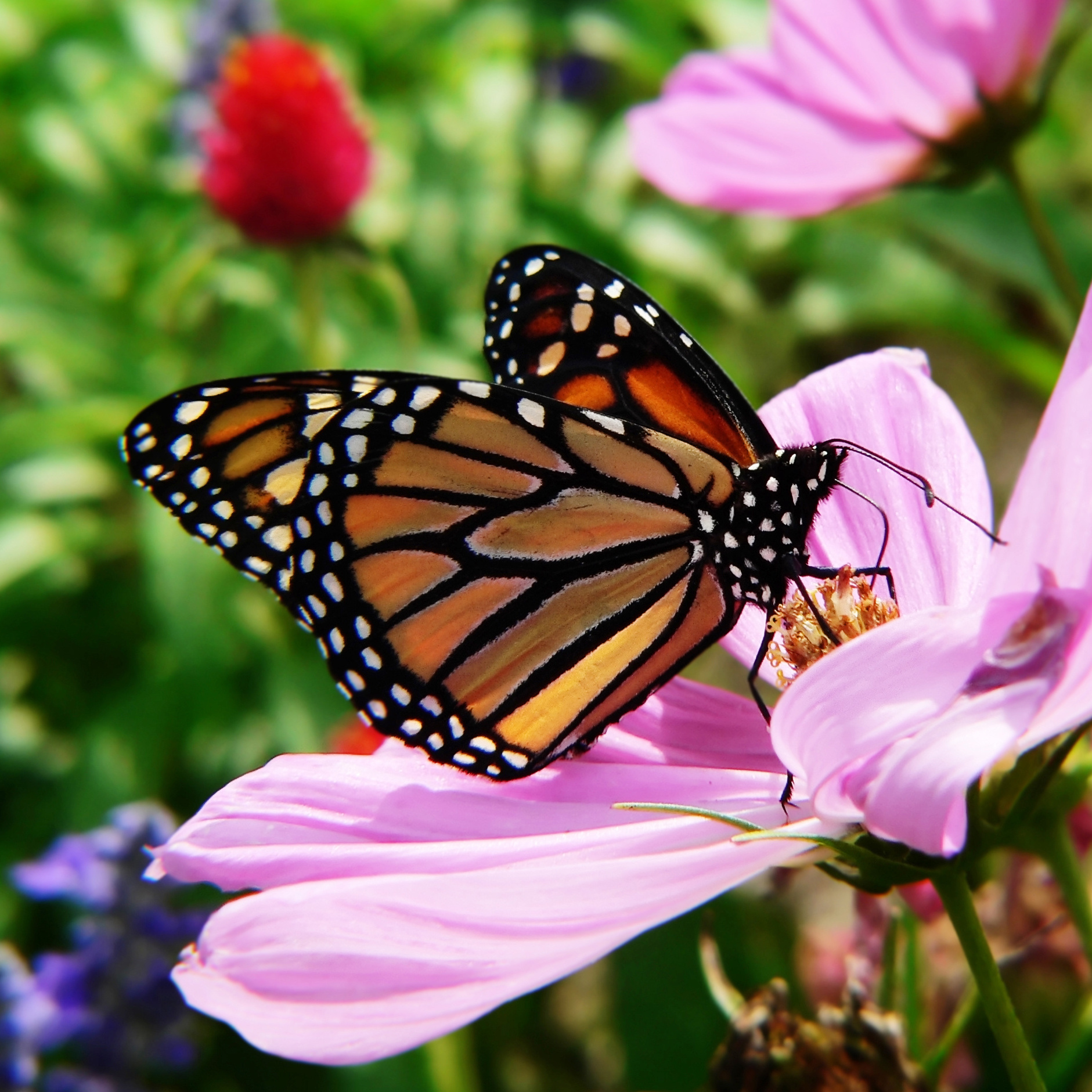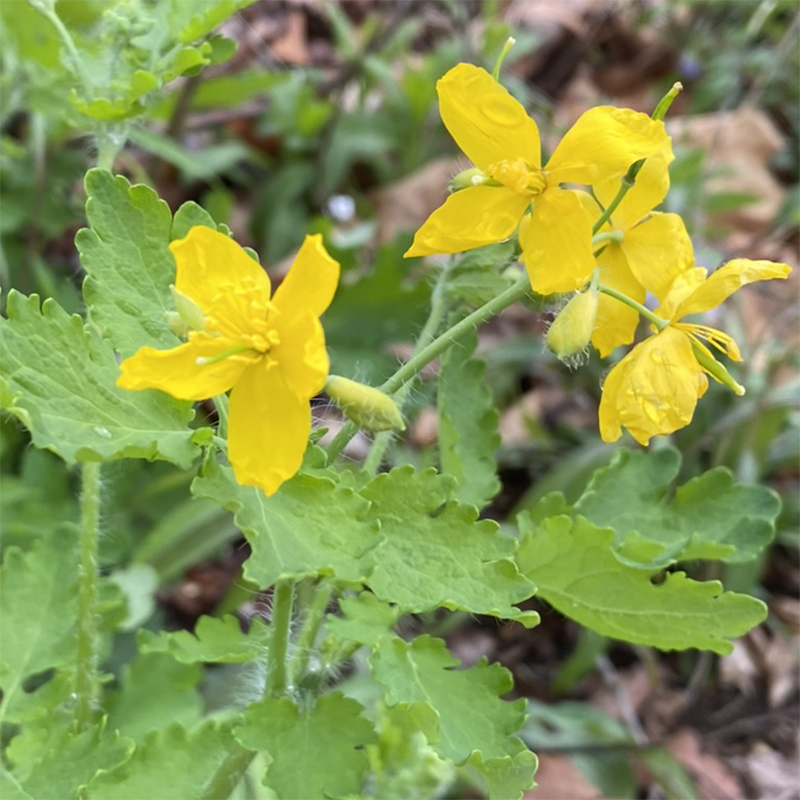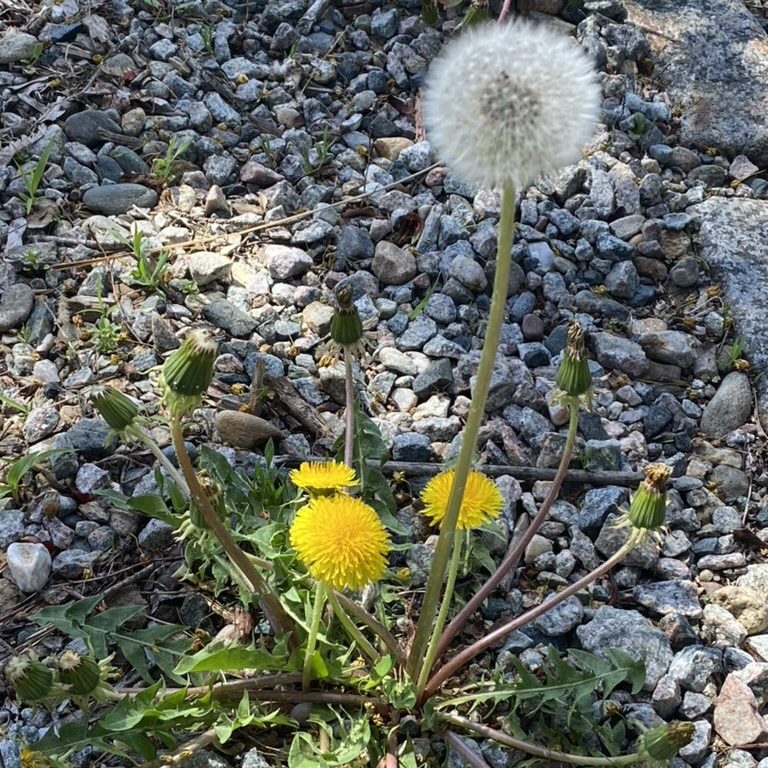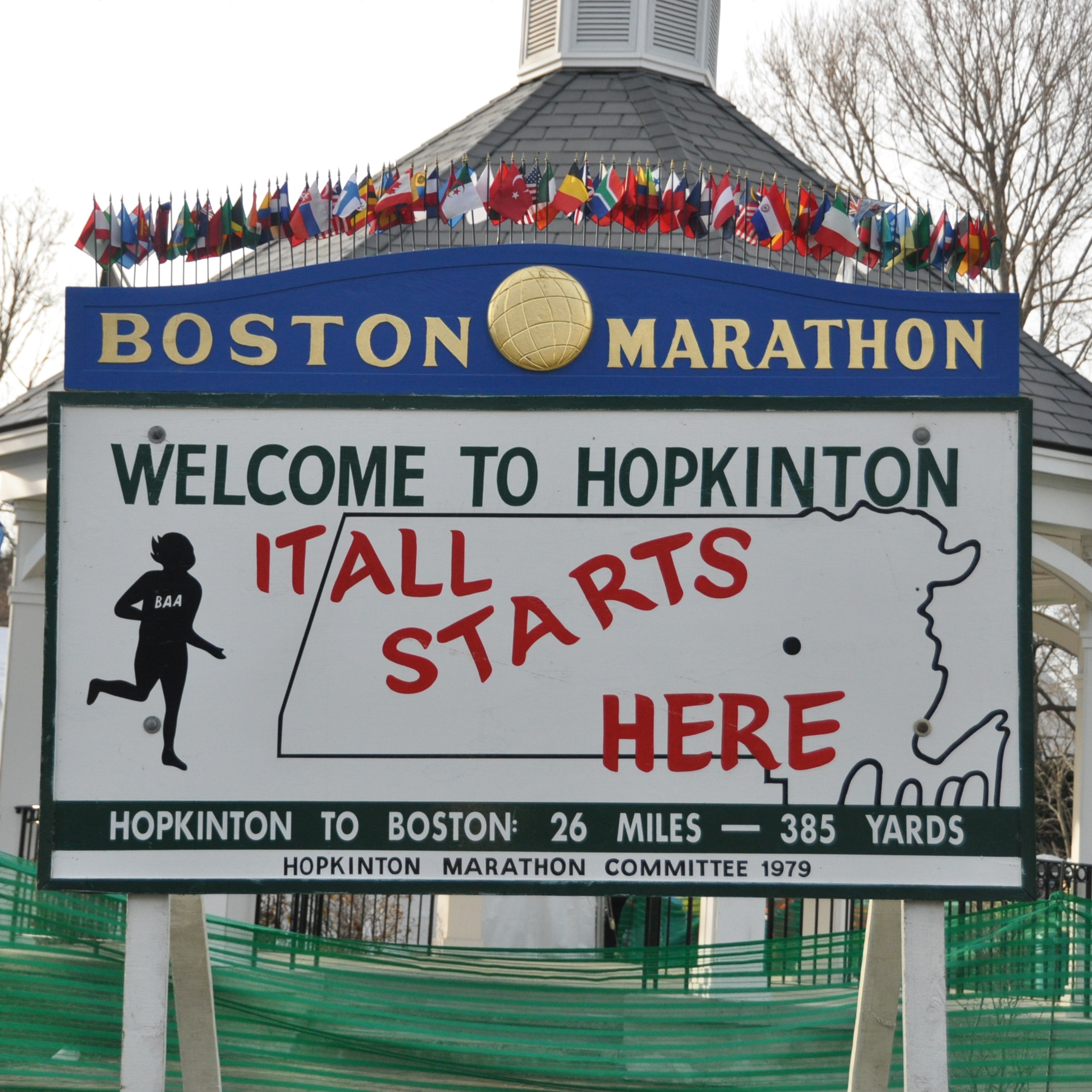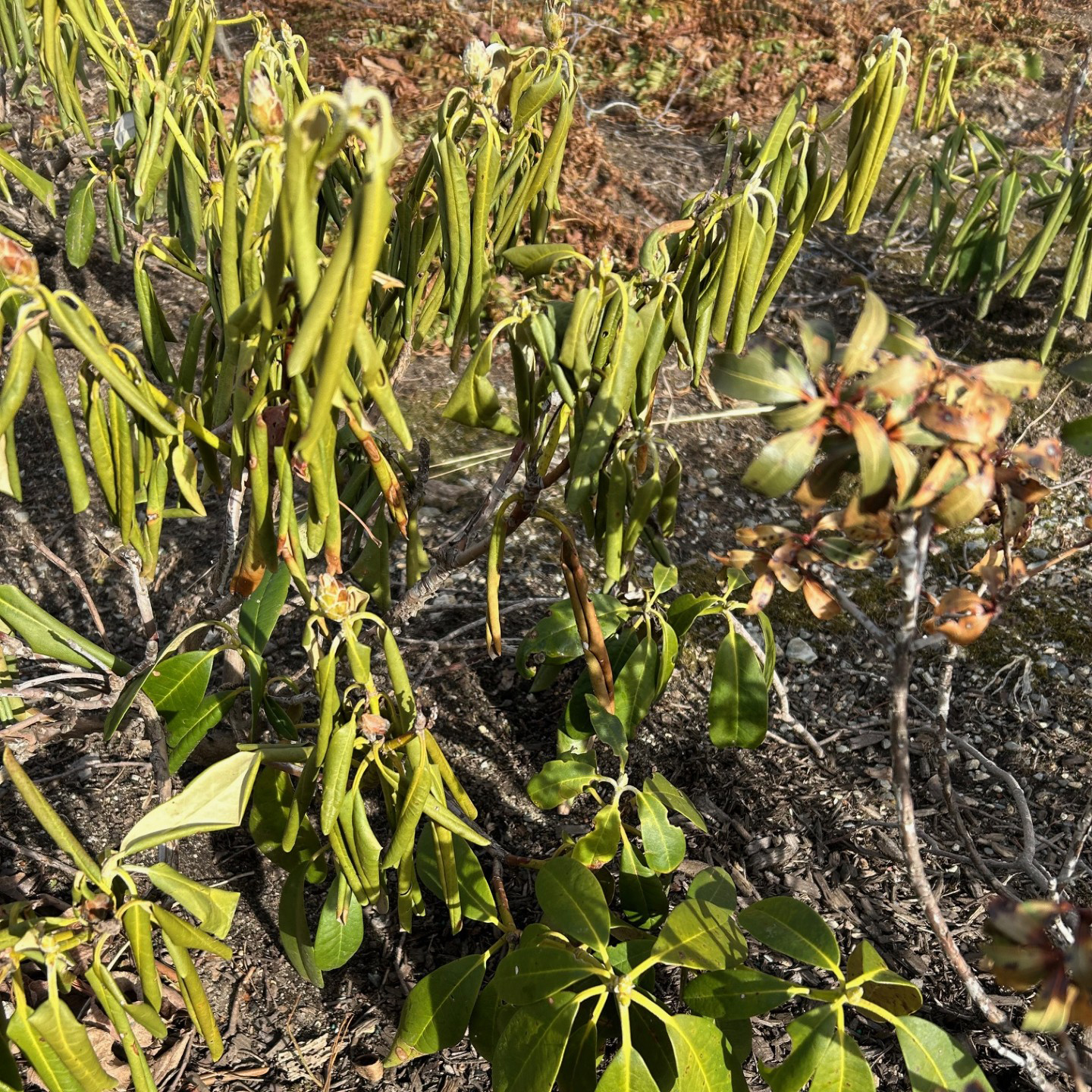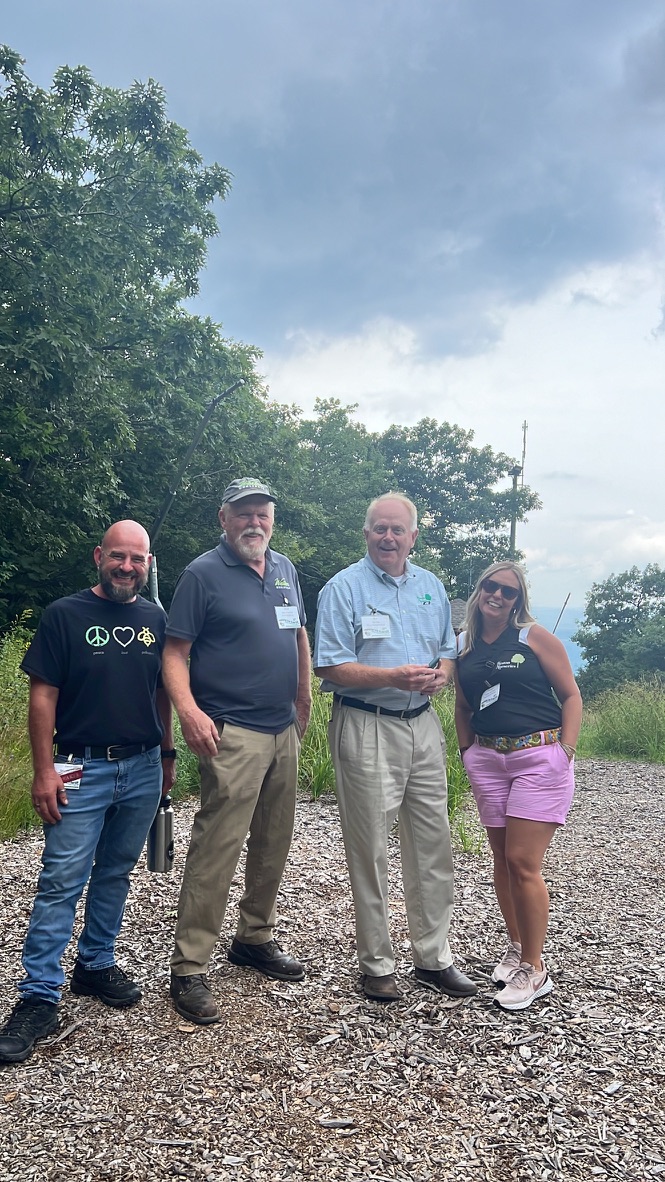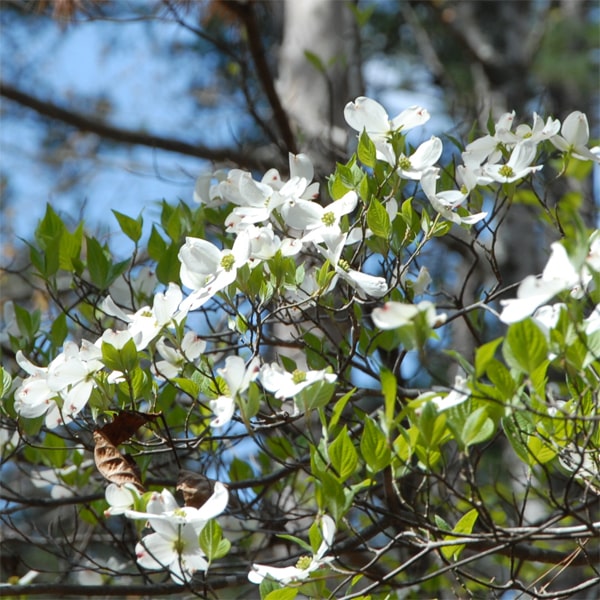
On occasional mornings this time of year, I awaken recalling a disturbing dream in which I’ve ventured outdoors, stunned to see that I’ve missed the flowering-dogwood-bloom. In reality that’s an unlikely occurrence, particularly when we have a cool April like this year. And unless May weather turns unseasonably warm, these dogwoods provide a reliable display for two weeks and more every year.
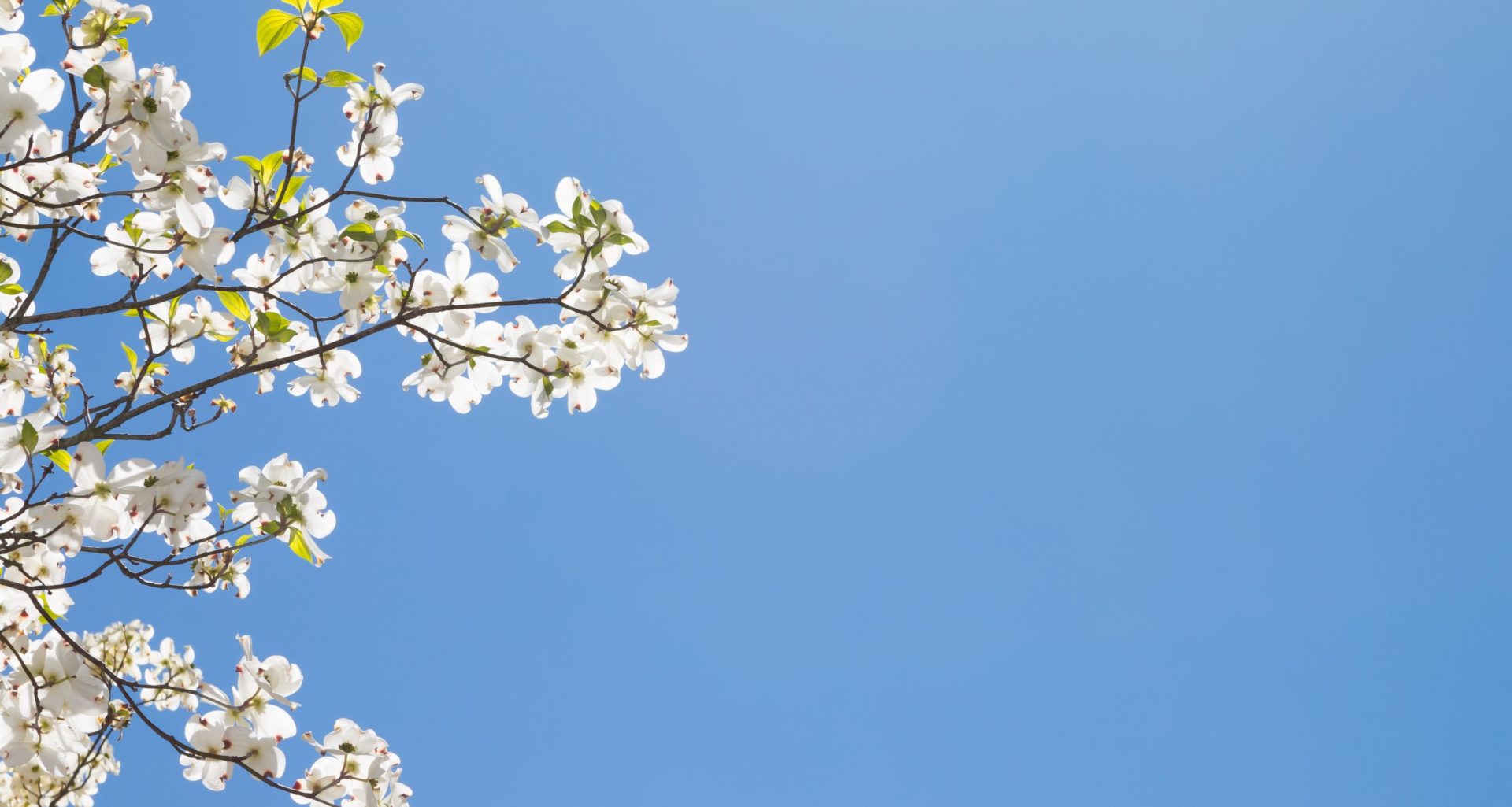
Clearly our native flowering dogwood (Cornus florida) is one of my favorites. It is likewise a popular choice for many homeowners in this region, as evidenced by the profusion of their spectacular floral displays bursting forth in so many neighborhoods. And the pink-flowering cultivars add to the appeal, as do the wide range of foliage types and growing forms currently available in garden centers.
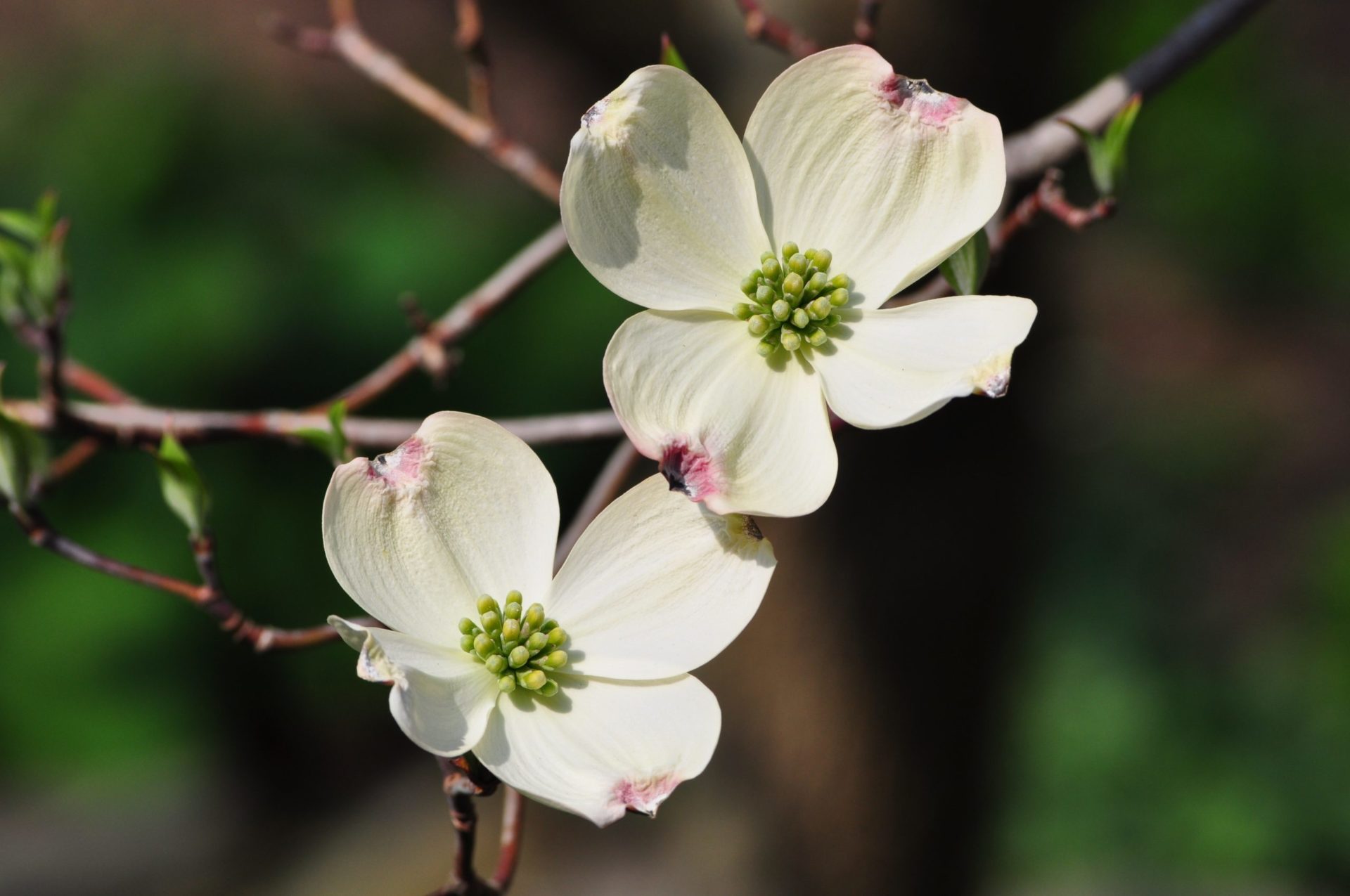
When my parents and grandparents moved our Weston Nurseries business to Hopkinton back in the 1940’s they cleared many acres of woodland to grow nursery field crops. In one area they discovered a mature group of dogwoods growing naturally. Hopkinton (at that time) was at the northernmost range where dogwoods would grow, so this was an unexpected discovery. And instead of destroying these classic trees they worked around them, sagely transplanting a good number to other locations around the farm.
One such planting is still growing on the hillside below our current home, and our family revels in its floral beauty every spring. Over the years many seedlings from these original trees have germinated and now pepper the slope below us, some even rivaling the size of their parents. For our family, it just wouldn’t be springtime without that spectacular display we enjoy right in our own backyard.
About the Author
Wayne Mezitt is a 3rd generation nurseryman, a Massachusetts Certified Horticulturist, now chairman of Weston Nurseries of Hopkinton, Chelmsford & Hingham MA, and owner of “Hort-Sense”, a horticultural advisory business. He currently serves in various capacities on several horticulturally-related organizations, including the Massachusetts Horticultural Society at The Gardens at Elm Bank in Wellesley MA, and chairman for the Massachusetts Invasive Plant Advisory Group (MIPAG).


